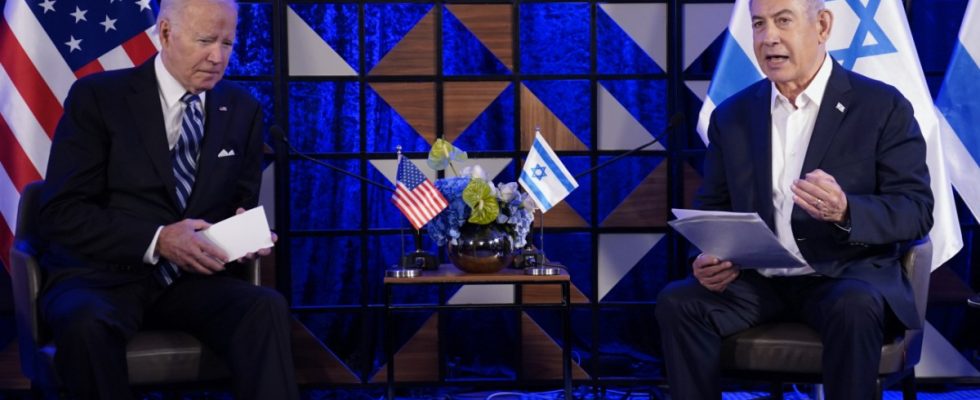Israel has resumed and expanded the war for Gaza with massive force. For now, all warnings have been pushed aside – about the high number of civilian casualties, about a humanitarian catastrophe and about the danger to the 137 hostages who are still being held by Hamas and its henchmen. Prime Minister Benjamin Netanyahu responds to all calls from Washington to change the way the war is waged with strong words: “In the end, this is our war and we make the decisions,” he said in Tel Aviv at the weekend. The fight against Hamas will continue until “absolute victory”.
On the ground, the fighting in the north of the Palestinian coastal strip is concentrated in those parts of Gaza City that the Israeli army has not yet been able to bring under control. However, heavy air strikes on the city of Khan Yunis in the south suggest that a ground offensive is also being prepared there. It is suspected that Hamas leader Jahia Sinwar is hiding there. At the same time, almost the entire population of around two million people is crowding into the southern Gaza Strip after the residents of the north were forced to flee.
In view of the foreseeable dangers for the civilian population, the warning calls from Washington are becoming louder. After Secretary of State Antony Blinken had already urged compliance with international humanitarian law in Israel last week, Vice President Kamala Harris and Defense Secretary Lloyd Austin have now joined in. “Too many innocent Palestinians have been killed,” Harris said. The images and videos from the Gaza Strip are “devastating.” Austin said protecting civilians is “at once a moral responsibility and a strategic imperative.”
Netanyahu appears unimpressed – and is clearly hoping to score points with his own people by building a bulwark against external pressure. He doesn’t just want to withstand calls for moderation in warfare. His opposition is also directed against the US government’s plans for a post-war order, which envisage a return of President Mahmoud Abbas’s Palestinian Authority to the Gaza Strip after the expulsion of Hamas and negotiations with the aim of a two-state solution.
Netanyahu wants to prevent both by verbally attacking the autonomous authority. “It doesn’t fight terror, it finances it,” he said. Nothing would change in Gaza if Abbas and his autonomous authority took responsibility there. Netanyahu has so far avoided presenting his own proposals for the period after the war.
Vaguely and therefore open to interpretation, he only announced a future “security control” by Israel over the Palestinian territory. The idea of a “buffer zone” that would protect Israel from terrorist attacks like the one on October 7th was brought into play at the weekend. This “security envelope” is supposed to lie within the Gaza Strip, which is only 40 kilometers long and twelve at its widest point. The USA has already strictly rejected any border changes and any reduction in the area of the Palestinian territory.
Negotiations over the exchange of more hostages have reached an impasse
Negotiations over a new ceasefire and a further exchange of Israeli hostages for Palestinian prisoners have reached a dead end. Mossad chief David Barnea ordered the departure of the Israeli negotiating team from Qatar over the weekend. At the same time, Hamas deputy Saleh al-Aruri stated that there would only be further exchanges with Israel once the war ended. “This decision is final, we will not compromise,” he said.
This triggers desperate fears among the relatives of the 137 Israeli hostages, among whom there are said to be 15 women and two children. Thousands took to the streets in Tel Aviv on Saturday evening to support their fight for the release of all hostages. There were also solidarity events in many other cities.
Some of the hostages who were released last week also spoke in the square in front of the Tel Aviv Art Museum. They urged the Israeli government not to sacrifice those left behind for war calculations. The “Family Forum”, in which the relatives have come together, is demanding a meeting with the war cabinet and answers to how the government now wants to bring all the abductees home. “Every day,” the appeal says, “could be your last.”

